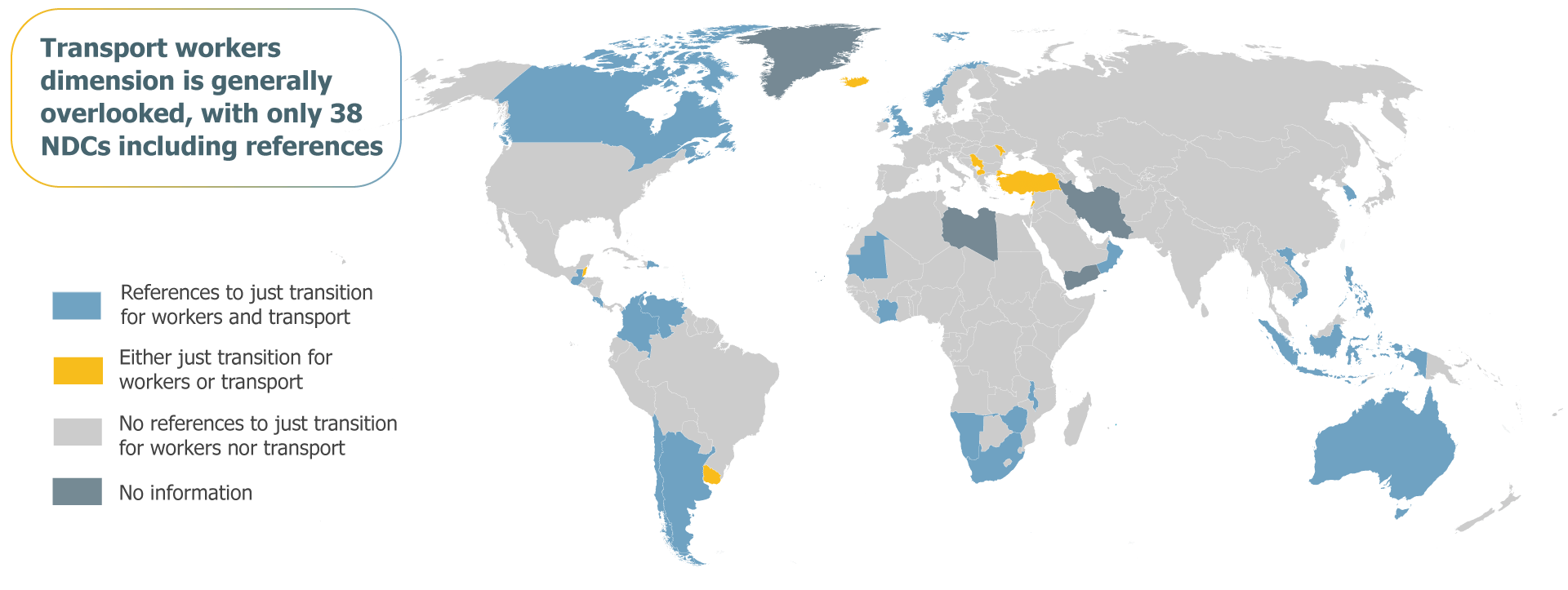Enhancing ambition in climate action
In 2025, countries are required to submit a new round of Nationally Determined Contributions (NDCs) for the implementation of the Paris Agreement on Climate Change. This is a crucial opportunity for countries to address current gaps in ambition and set robust 2030 targets for transport decarbonisation, adaptation, and resilience. Together with our partners, we share insights on how to enhance NDCs, in the two important areas of freight transport & logistics and just transition in transport.
Freight transport and logistics in national climate strategies
Freight transport and logistics connect goods, markets and consumers, driving socio-economic development. They play a key role in accelerating the transition to a low-carbon economy, creating green jobs, scaling up low-carbon technologies and enabling low-carbon value chains. However, the way goods are moved today results in significant negative climate and sustainability impacts.
The analysis, developed by SLOCAT in cooperation with the Kühne Climate Center, reveals significant gaps in the current approach to freight transport and logistics within NDCs and Long-Term Strategies (LTS). Although 42% of NDCs include content related to freight transport and logistics, very few set specific targets for this sector. Road transport is the main source of emissions but few NDC actions refer to trucks or road freight transport in general. NDCs and LTS prioritise passenger transport over freight transport at a ratio of 5:1. Additionally, the issues of climate change adaptation and the resilience of freight transport are almost entirely overlooked in NDCs.
To address this gap, the next round of NDCs and new LTS must include balanced, integrated, and intermodal actions for freight transport across the Avoid-Shift-Improve framework. More ambitious targets are needed, encompassing all modes of freight transport and addressing both decarbonisation and adaptation contexts.
Freight transport and logistics content featured in NDCs
Zooming in
Prioritising just transition for transport in Nationally Determined Contributions
A just transition to equitable, healthy, green and resilient transport and mobility systems is central to socioeconomic prosperity for the people and the planet. A just transition secures the future and livelihoods of workers and their communities during the transition to a low carbon economy, effectively limiting global temperature rises to 1.5°C above pre-industrial levels.

Co-create plans with workers and their trade unions

Guarantee decent work, safeguards against climate harms, social protection, training opportunities and
job security for all workers

Underpinned by ILO fundamental labour rights and the freedom of association and collective bargaining

Facilitate through social dialogue between workers and their unions, employers and governments

Ensure intra-, intergenerational and gender equity, racial justice, respect for the rights of indigenous peoples, impacted communities and migrants

Align climate finance with just transition objectives and appropriate benchmarks, assessments and monitoring
The analysis developed by SLOCAT and the International Transport Workers’ Federation shows that less than 20% of NDCs mention a just transition in the transport sector. Even when specific provisions for transport are included, the needs and roles of workers in rail, road, urban transport, aviation, and maritime are generally ignored.

